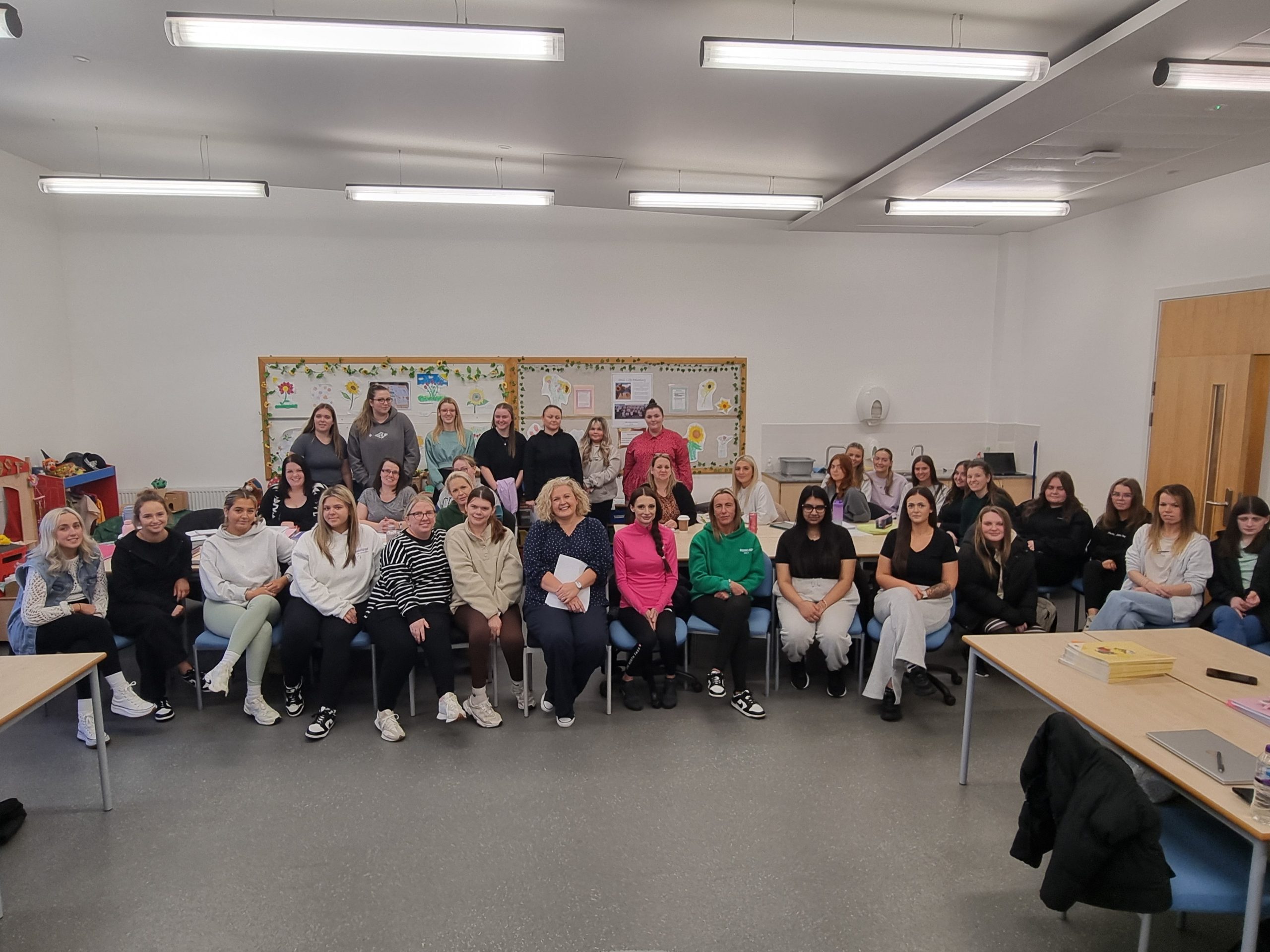I recently had the pleasure of giving a talk to students at my old college (Motherwell College now New College Lanarkshire). During my talk, I encouraged students to reflect upon and discuss their memories of play. There was chat about dressing up, playing with friends, running around, and one student said that she loved playing outdoors when she was a child, however she didn’t play outside any longer as she had outgrown it. This sparked my curiosity about why adults stop playing, is it because society considers play ‘childish’? Or because we become so overwhelmed with adult responsibilities such as working, studying, and paying the bills that we have no time left for fun and play? Or could it simply be that we fail to see the things that we do in our spare time that brings us joy or excitement as “play”? I love pottering about in my garden, pulling out weeds, tending to the more challenging plants, including a huge triffid-like plant my friend Claire gave me, that I’m sure will take over the world, not just my garden! Gardening is something that I really enjoy, it’s something that I voluntarily choose to do, I choose to do it for its own sake and I’ve an innate drive to tend my plants…do you see where I’m going here….on reflection could this be classed as free play?
This led me to look for research that supports the idea that play is not just for children, exploring this notion, I stumbled upon an interesting article by Dave Neale (2020) for the British Psychological Society website. Neale argues that we are in the ‘golden age of play for adults’, with increasing interest in adult-targeted play experiences such as video games, ‘escape rooms’ and gaming conventions. He suggests that adults engage in ‘playful interactions,’ where we make every day, mundane situations into entertaining, stimulating experiences. This links to the idea of playful adults, who Barnett’s (2007) describes as individuals who embody qualities like humour, spontaneity, and adventurousness.
Investigating further, I discovered research by Proyer (2013) on playfulness in adults, which was found to enhance overall wellbeing, creativity, humour, and hope. It can act as a coping mechanism for stress, contribute to physical health, and make exercise more enjoyable. Furthermore, play improves learning, problem-solving, and social skills. This research challenges the notion that play is exclusive to childhood, emphasising its crucial role in adult life.
Neale suggests that society often views adult play in a more structured way, such as engaging in games or sports with defined rules. However, I feel that this perception limits the broader concept of play and excludes activities that don’t conform to defined rules.
Why is it socially acceptable for adults to play organised sports such as football or rugby but not socially acceptable for adults to jump in muddy puddles, unless they are competing in organised events like a ‘Tough Mudder’?
This led me to think about play for older children, who due to increased social awareness, may feel uncomfortable playing as they did when they were a wee child. It also led me to think about our new Play Pedagogy Award and how this might look in the upper stages of school. Should we expect P7 teachers to incorporate elements like sand and water trays, seen in the classrooms of our younger children? Not unless they want to, and not unless their child-led practice and knowledge of the curriculum calls for it. Play changes and develops as we get older and becomes more about curiosity and inquiry, about filling your time with something that you want to do and enjoy.
So can adults play….I really believe that we can, and we should!
Embracing play in adulthood could be exactly what we need in today’s stressful world! Whether it’s through gardening, video games or playful interactions, adults must engage in activities that create joy, spontaneity, and a sense of fun and adventure and by doing so, we can rediscover the rewarding benefits of play, promoting a healthier and more balanced lifestyle amid the demands of our modern lives.
References
Barnett, L.A., (2007). ‘The nature of playfulness in young adults.’ Personality and Individual Differences, 43, pp.949-958.
Neale, D. (2020). A golden age of play for adults. Retrieved from The British Psychological Society: https://www.bps.org.uk/psychologist/golden-age-play-adults
Proyer, R.,(2013). The well-being of playful adults: Adult playfulness, subjective well-being, physical well-being, and the pursuit of enjoyable activities. European Journal of Humour Research. 1. 84-98. 10.5167/uzh-78008.






One reply on “Are we ever too old to play?”
[…] Scotland have shared this thoughtful blog by Fiona Kirk (27 February […]